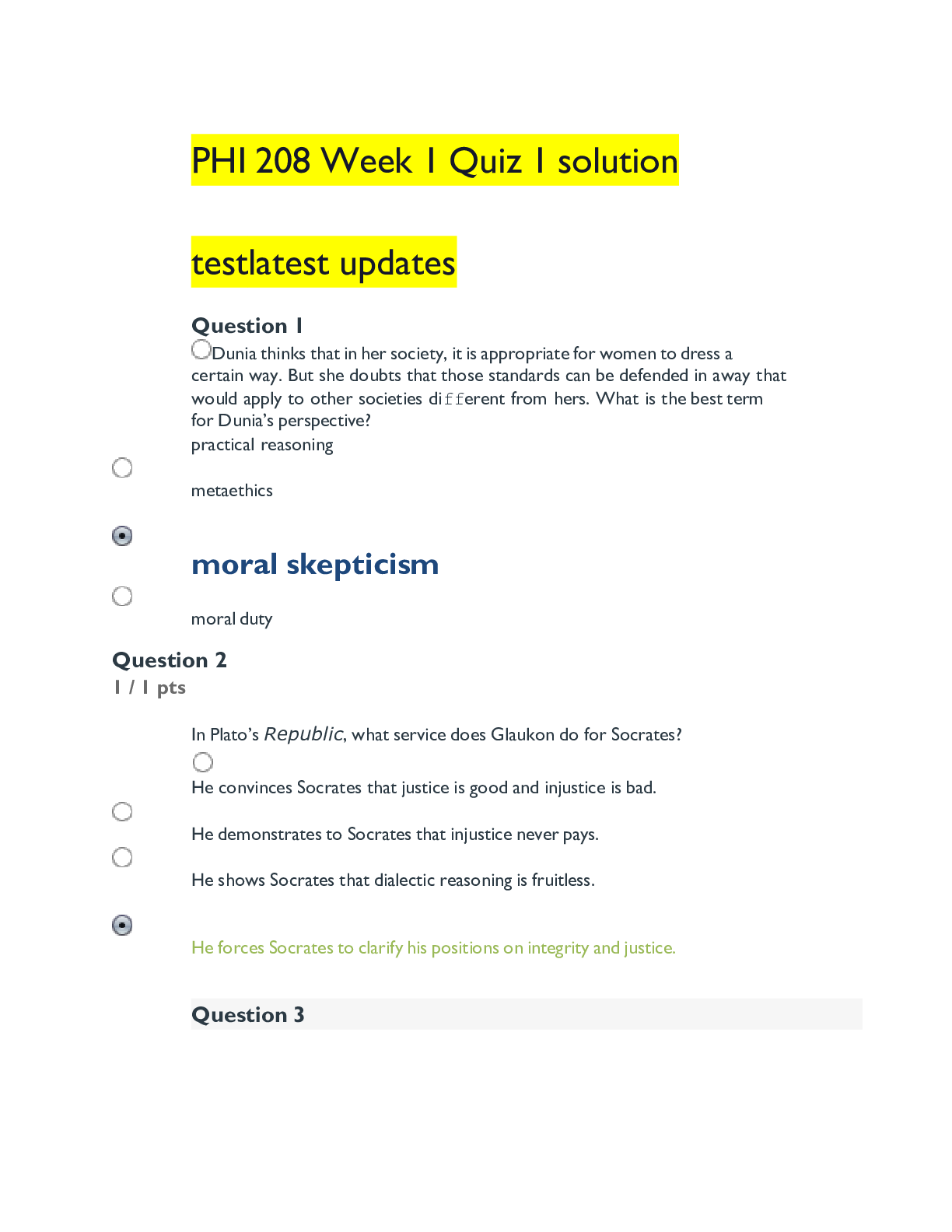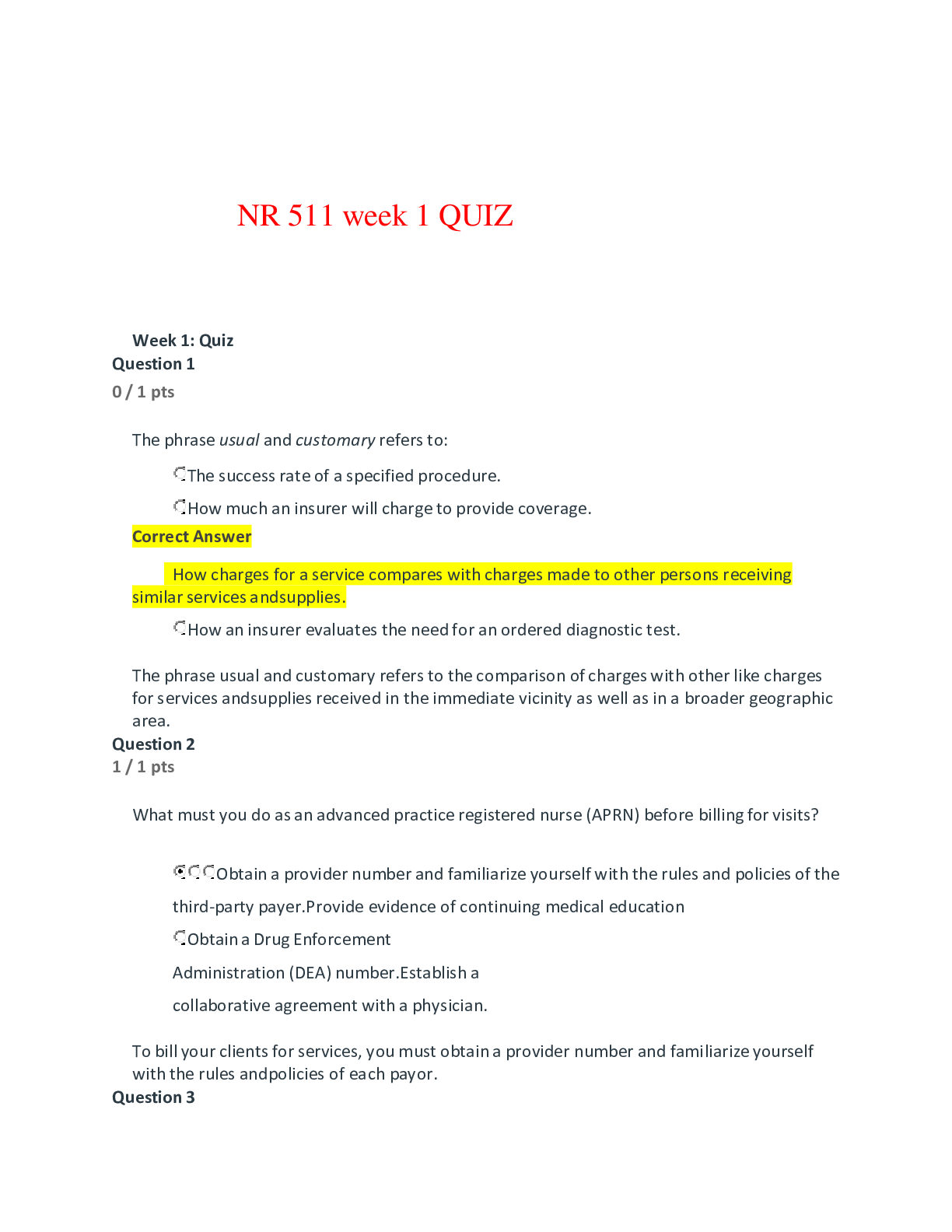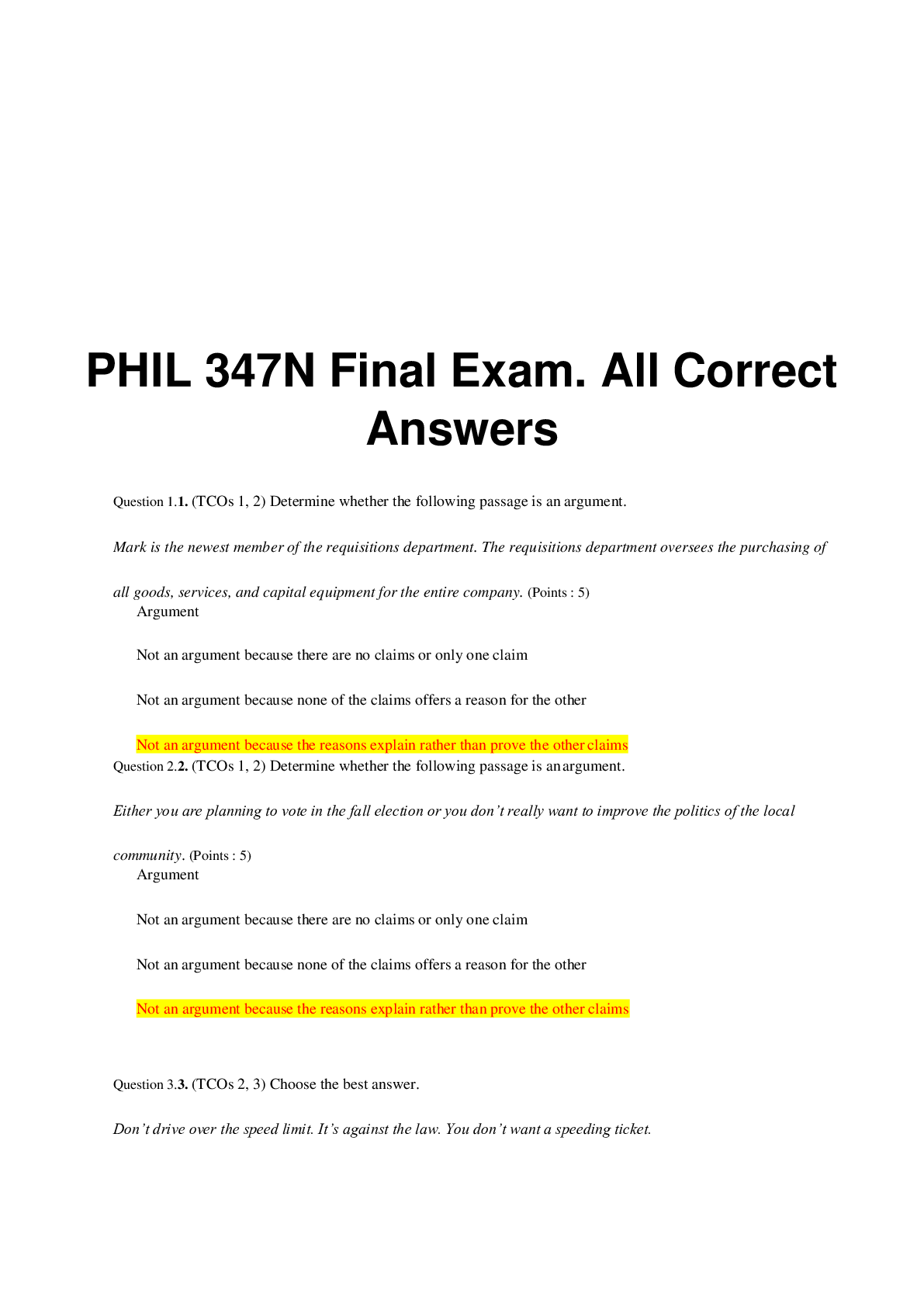*NURSING > QUESTIONS & ANSWERS > parcial-1-july-spring-2021-questions-and-answers-nurs 6501-knowledge-check-module-3-answer-key (All)
parcial-1-july-spring-2021-questions-and-answers-nurs 6501-knowledge-check-module-3-answer-key
Document Content and Description Below
This Knowledge Check reviews the topics in Module 3 and is formative in nature. It is worth 20 points where each question is worth 1 point. You are required to submit a sufficient response of at least... 2-4 sentences in length for each question. Scenario 1: Peptic Ulcer A 45-year-old male comes to the clinic with a chief complaint of epigastric abdominal pain that has persisted for 2 weeks. He describes the pain as burning, non-radiating and is worse after meals. He denies nausea, vomiting, weight loss or obvious bleeding. He admits to bloating and frequent belching. PMH-+ for osteoarthritis, seasonal allergies with frequent sinusitis infections. Meds-Zyrtec 10 mg po daily and takes it year-round, ibuprofen 400-600 mg po prn pain Family Hx-non contributary Social history-recently divorced and expressed concern at how expensive it is to support 2 homes. Works as a manager at a local tire and auto company. He has 25 pack/year history of smoking, drinks 2-3 beers/day, and drinks 5-6 cups of coffee per day. He denies illicit drug use, vaping or unprotected sexual encounters. Breath test in the office revealed + urease. The healthcare provider suspects the client has peptic ulcer disease. • of 2 Questions: What factors may have contributed to the development of PUD? <Type your response here> Answer: Stress secondary to divorce and financial situation, cigarette smoking, alcohol consumption, use of NSAIDS, excess coffee consumption, +H Pylori test • of 2 Questions: How do these factors contribute to the formation of peptic ulcers? <Type your response here> Answer: Chronic use of NSAIDS causes suppresses of mucosal prostaglandin and direct irritative topical effect. High gastrin level and excessive gastric acid production © 2020 Walden University 1 often seen in Zollinger-Ellison syndrome which can caused by gastrinoma. Smoking impairs healing by vasoconstriction. H Pylori causes gastritis and interferes with mucosa Scenario 2: Gastroesophageal Reflux Disease (GERD) A 36-year-old morbidly obese female comes to the office with a chief complaint of “burning in my chest and a funny taste in my mouth”. The symptoms have been present for years but patient states she had been treating the symptoms with antacid tablets which helped until the last 4 or 5 weeks. She never saw a healthcare provider for that. She says the symptoms get worse at night when she is lying down and has had to sleep with 2 pillows. She says she has started coughing at night which has been interfering with her sleep. She denies palpitations, shortness of breath, or nausea. PMH-HTN, venous stasis ulcers, irritable bowel syndrome, osteoarthritis of knees, morbid obesity (BMI 48 kg/m2) Family history-non contributary Medications-amlodipine 10 mg po qd, dicyclomine 20 mg po, ibuprofen 600 mg po q 6 hr prn Social hx- 15 pack/year history of smoking, occasional alcohol use, denies vaping [Show More]
Last updated: 2 years ago
Preview 1 out of 16 pages

Buy this document to get the full access instantly
Instant Download Access after purchase
Buy NowInstant download
We Accept:

Reviews( 0 )
$10.00
Can't find what you want? Try our AI powered Search
Document information
Connected school, study & course
About the document
Uploaded On
Apr 03, 2021
Number of pages
16
Written in
Additional information
This document has been written for:
Uploaded
Apr 03, 2021
Downloads
0
Views
64






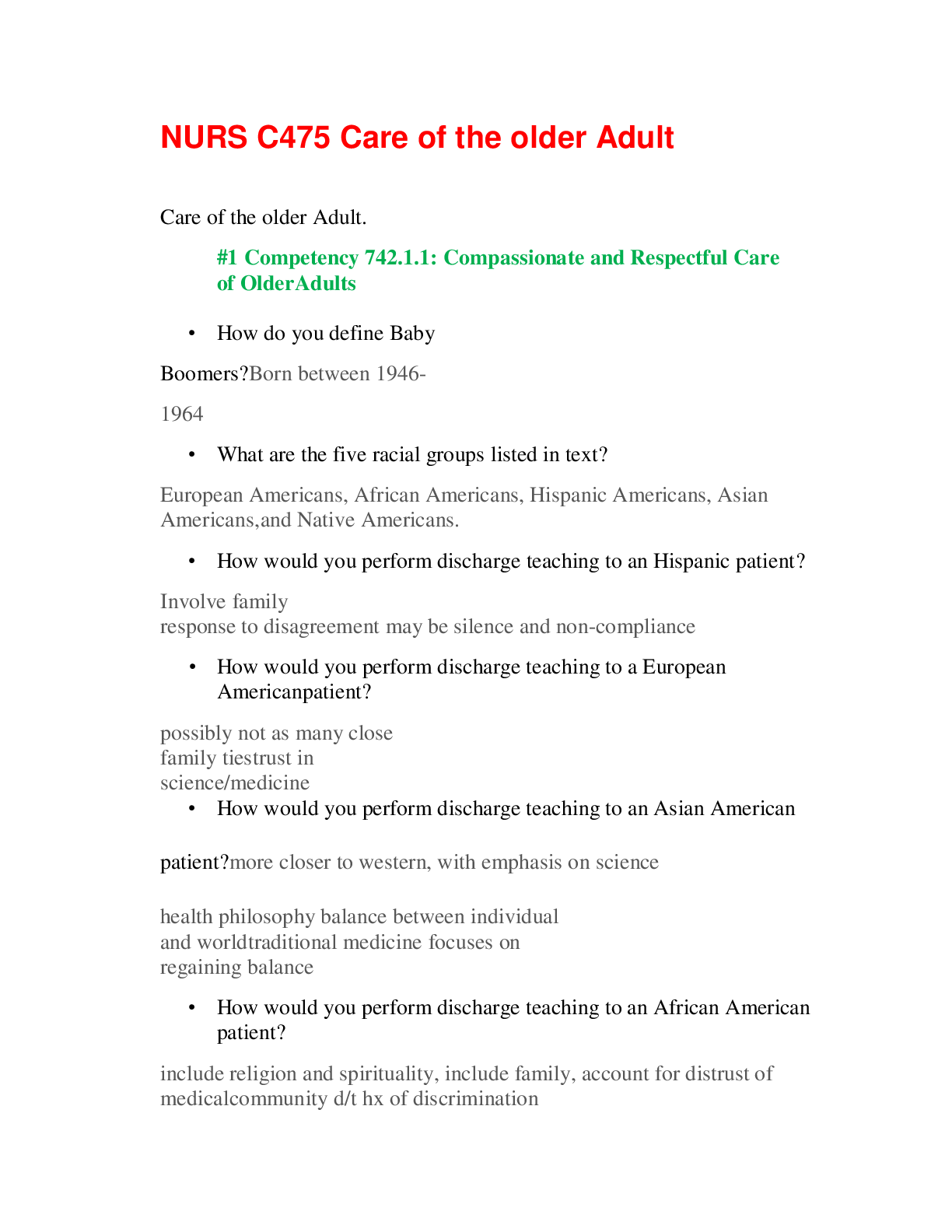
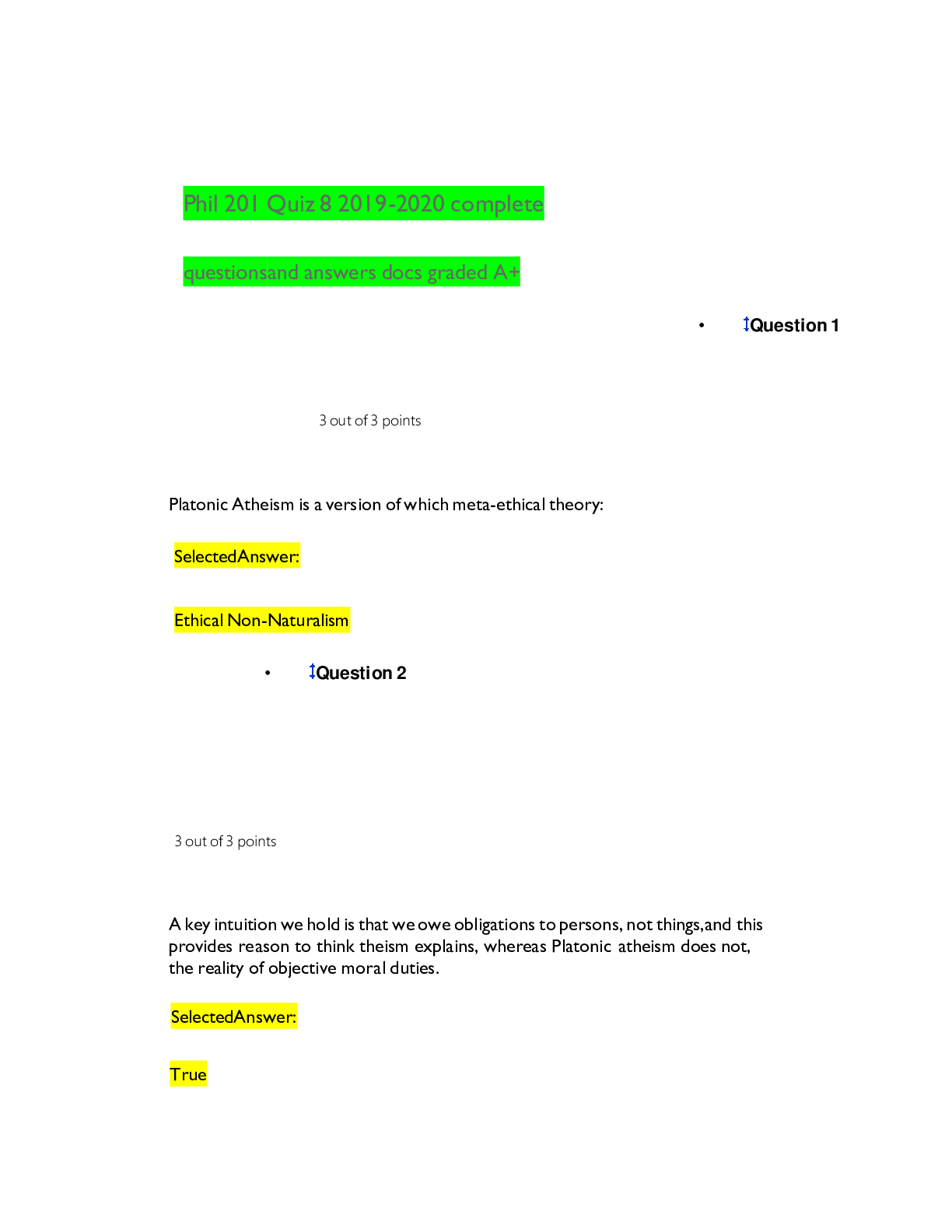
.png)

